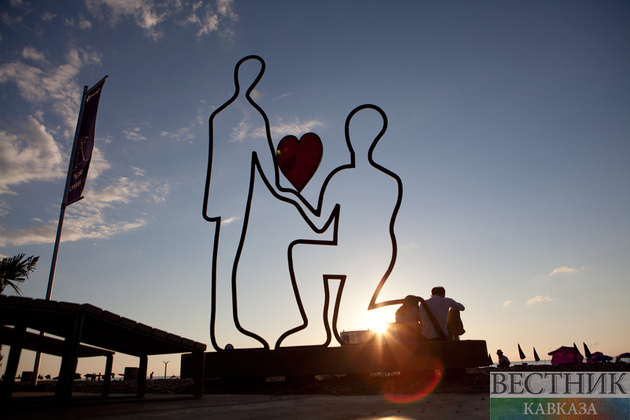Three post-Soviet republics at once - Ukraine, Moldova and Georgia - decided to try their luck and applied for the status of a candidate member of the European Union, taking advantage of the unexpectedly opened window of opportunity after the start of the Russian-Ukrainian confrontation. Kyiv, Chisinau and Tbilisi considered that they should play on anti-Russian sentiments and phobias in Europe in order to get, possibly, the last opportunity to join the EU. After all, who knows what the new realities will be as a result of the Russian special military operation.
In the situation with Kyiv, everything is clear, and therefore there are no special questions for him. The Ukrainian government has chosen its own path, no matter how suicidal and bloody it may be. Perhaps, if the European bureaucracy had been quicker, and the political will of the European leaders expressed more clearly, then they - the eternal candidates for candidates - would have had time to become true candidates in the first two months of military actions in Ukraine. But Europeans, especially Western ones, treat their new potential members with caution. It cannot be said that it is unreasonable - here, after all, a whole bunch of problems can be obtained: unresolved territorial problems with Abkhazia, South Ossetia and Transnistria, and frankly bad institutions of power, and high rates of migration from economically weak countries. All this "good things" Europe already has today.
The case of Georgia is of particular interest. Firstly, because this country barely survived the military clash with Russia in 2008, almost losing its statehood. We remember that Russian tanks stopped a few kilometers from Tbilisi, and the Georgian army had already been defeated by that moment. Tbilisi has not turned off the European integration path since then, but after the change of Mikheil Saakashvili's power and the entry into the ruling cabinets of the Georgian Dream coalition, the ardor and pace have somewhat diminished. Therefore, the decision of the Georgian government to try to join the European Union, taking advantage of the Ukrainian events, came as a surprise to many. This step, by the way, caused undisguised irritation in Kyiv. The Ukrainians considered that the Georgian authorities, who did not deign to join the anti-Russian sanctions, were trying to get political dividends on their blood.
On June 13, the European Commission held preliminary discussions on the three countries' applications. According to insiders, the applications of Kyiv and Chisinau received generally positive feedback from Europeans, but in the case of Tbilisi, everything turned out to be doubtful. Here, perhaps, it should be recalled that over the past year, relations between Georgia and the West have been "shaking" quite strongly. "Georgian Dream" actually refused to implement a number of provisions of the so-called "Charles Michel deal" of April 2021, designed to resolve the internal political crisis in the country and reconcile the authorities and the opposition. Representatives of the Georgian Dream government regularly criticize EU Ambassador Karl Harzel and US Ambassador Kelly Degnan, who, after years of work in Georgia, are not accustomed to local authorities opposing their recommendations. The attitude of Western human rights organizations towards Georgia has also changed for the worse, as reflected in their increasingly critical reports.
It's not surprising that in the current situation, official Tbilisi is also quite tough. The Georgian government wants to achieve a major foreign policy success, but is trying to insure itself against failure. "If anyone is supposed to be in the EU, then it should be Georgia, and then Ukraine and Moldova", Georgian Prime Minister Irakli Garibashvili said, commenting on reports that Tbilisi's application for the status of an EU candidate "remains in question". According to Garibashvili, Georgia deserves this status because of the path of reforms carried out over the past nine years.
"They say that Ukraine is in a state of war and because of this it should be granted status, it turns out that the assignment of status is determined by war. And we do not want it, we demand a well-deserved status, which the Georgian people deserve with their 30 years of struggle on the way building democracy and on the path of reforms carried out over the past nine years", he said at a government meeting.
A little earlier, Garibashvili made a barely veiled blackmail statement against European officials: "If the decision is unfair, I reserve the right to lift the veil and say everything". He did not specify what exactly the Georgian prime minister is going to tell, but it is obvious that this information will be given out in order to make the Europeans look bad, and at the same time justify himself to his own population, still living with European expectations. "I remain optimistic that a reasonable decision will be made in Europe, which also meets the interests of Europe and ours, and not the interests of Russia", the Head of the Georgian government said.






